ASHEN Review- dark souls but chill
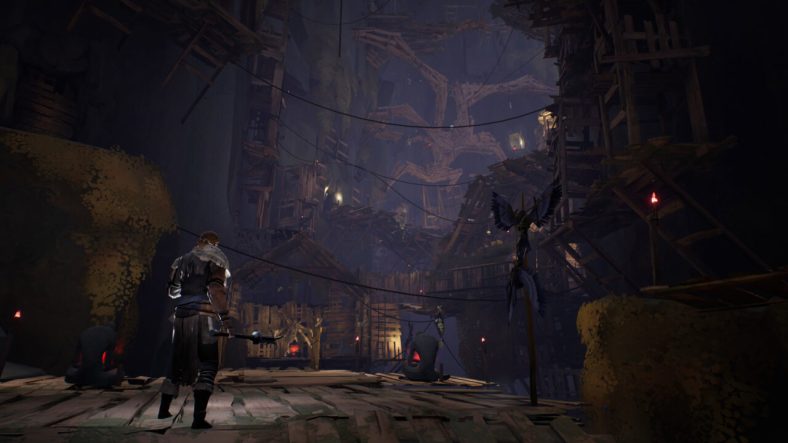
Developed by A44
Published by Annapurna Interactive, Xbox Game Studios
Available on PS4, Xbox One, Nintendo Switch, and PC
MSRP $39.99
I like to think I’m up to date on the latest Souls-like games, but Ashen only recently grabbed my attention. Specifically, the look of Ashen piqued my interest. The simple and streamlined aesthetic was very appealing to me, not just because of the look, but the idea that the entire game would be simple and streamlined. A lot of these Souls-like games get caught up staring at their own assholes trying to cram in a bunch of superfluous objects and areas. I wanted to play Ashen because I wanted a game that would do one thing really well, rather than many things okay. By and large, Ashen has exceeded my expectations.
The visuals are the most interesting part of Ashen. In my personal opinion, style is way more important than graphics. Whereas a realistic game will look good now, obviously with some exceptions, in just a few years it might seem ugly or uncanny. A well stylized game, such as Legend of Zelda: the Wind Waker or Jet Set Radio looks sharper and better than many modern games, despite both being well over 15 years old. Games with a good style age gracefully, but the key word there is “good.” For the most part, Ashen fits this description. Ashen has abandoned high detail, instead choosing to go with a minimalist style and simplistic blocky models.
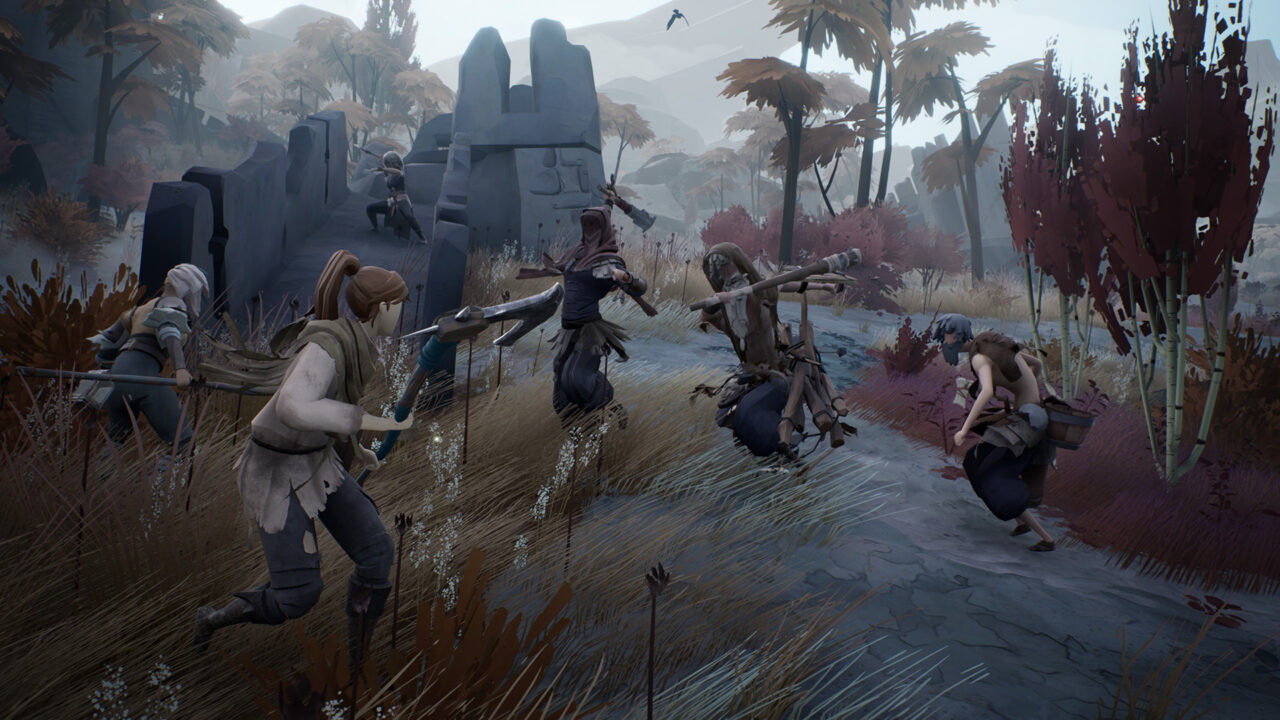
Ashen takes place in the world of… well I’m not really sure what this world is called. Let’s call it Ashganistan. No wait, how about Asherbaijan. Okay. Asherbaijan is a low-poly low-fantasy world without sunlight. The player begins in a hobo camp in this dark wasteland, clad in rags and armed with a stick. By coincidence, within about five seconds into the game, the light has returned by way of some unknown being called, you already know, the Ashen. The introductory scene was gibberish to me. The lore we are given in the intro involved some sort of world-tree and nine realms, so perhaps this is a Norse mythology game, but it also involves an ornate glowing pigeon, which I’m not sure follows that mythos. In any case, the sudden reappearance of light signals the various other hobos that it’s time to rebuild the broken world.
However, there are some people in the world who would rather not have the lights turned back on. And so as you travel through the world of Ashen, you will encounter bandits, cultists, and other groups of people who oppose your extremely vague quest. Animals attack too, but I doubt they have any real opinions on whatever divine being happened to be changing the lightbulbs. Ultimately the motivations of the basic enemies don’t matter, this game needs marauders to maraud and you need things to club with your club. Synergy.
Rebuilding society seems to be the main theme of Ashen. As you travel around and complete quests, you continually return to a little camp that is populated with people you’ve met and various hobos. But as you journey further and further away from camp, when you come back to turn in quests, the camp has been upgraded a bit. This was by far my favorite part of the game. Whereas in most RPGs your quests reward you with a small brown bag full of gold doubloons or a sword that deals green damage instead of yellow, Ashen gives you this living, growing village as a visual indicator of your progress. As well as, yknow, doubloons and all that.
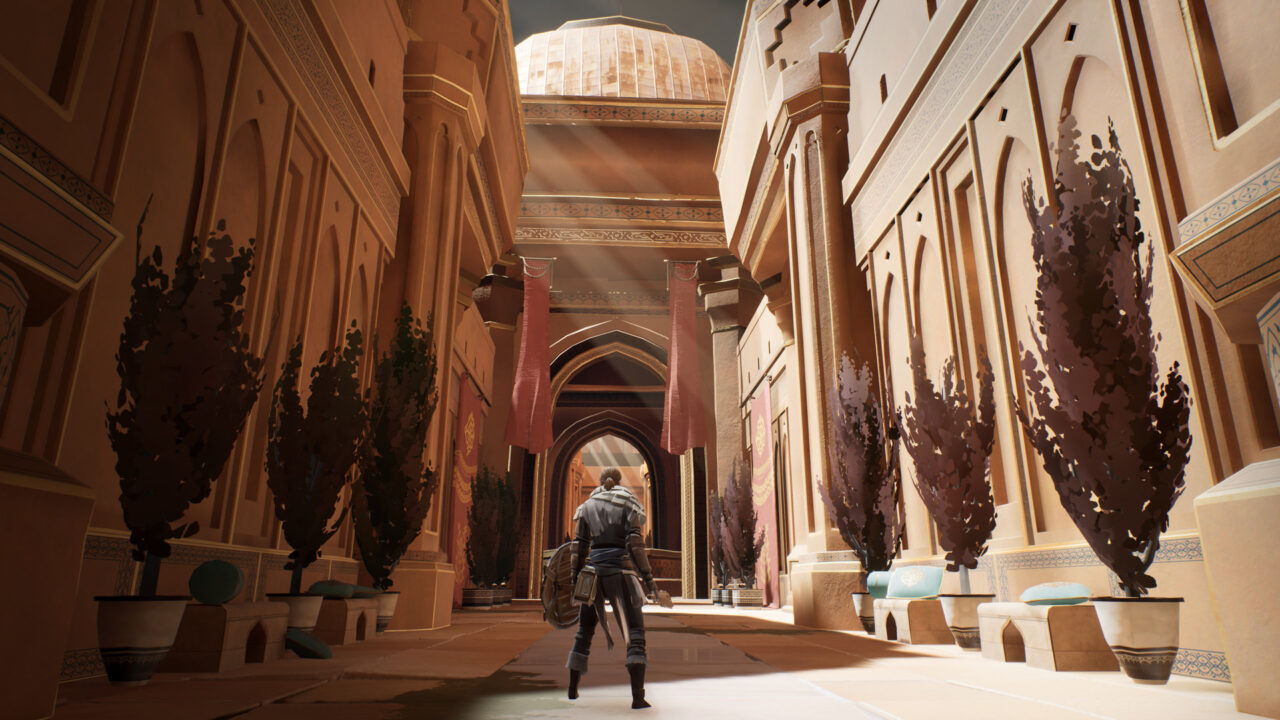
This may be a fairly vanilla fantasy world, but that doesn’t mean Ashen isn’t fun to explore. The game begins with a mountainous forest terrain, but as you travel further into the nation-state of Ashbania you begin to encounter some truly amazing areas. Grand ruins, labyrinthine caves, and underground superstructures are just a few of the spectacular places for you to get killed in. For the most part, the colors of Ashen are mostly dull and earth-tones, making for a cold and quiet atmosphere. But in my opinion, it is perfect for this game.
Ashen has taken much of its influence from Dark Souls style games. The mechanics are almost the same. You’ve got a one handed weapon, a two handed weapon, and a ranged weapon. Your character has a light attack, a heavy attack, a dodge and a block. Managing your stamina is critical. You already know how it plays. The only difference is you get a jump. Well, that’s not true, you’ve got throwing spears now. I would not say they are easy to use, or even useful for that matter. The tried and true club-things-until-they-die strategy has never failed me so far.
The mechanics for upgrades are a slight change from the norm. Rather than level up your character with the [souls] you collect, you instead upgrade your equipment. Fairly standard. But what’s more or less novel for Ashen is the perks. You meet a lot of people out in the world of Ashtrailia, and a lot of them come back home with you. These friends, in addition to providing some company while you travel, will sell you skills the more you progress. Spending [souls] on character upgrades at first seem kind of boring ie +5% health regeneration. But as you get deeper into the game, some of the perks get really interesting and cool. My favorite was the one that, as I would whack around enemies, would spawn black orbs that would home in on whatever I was fighting, dealing major damage. Lots of fun.
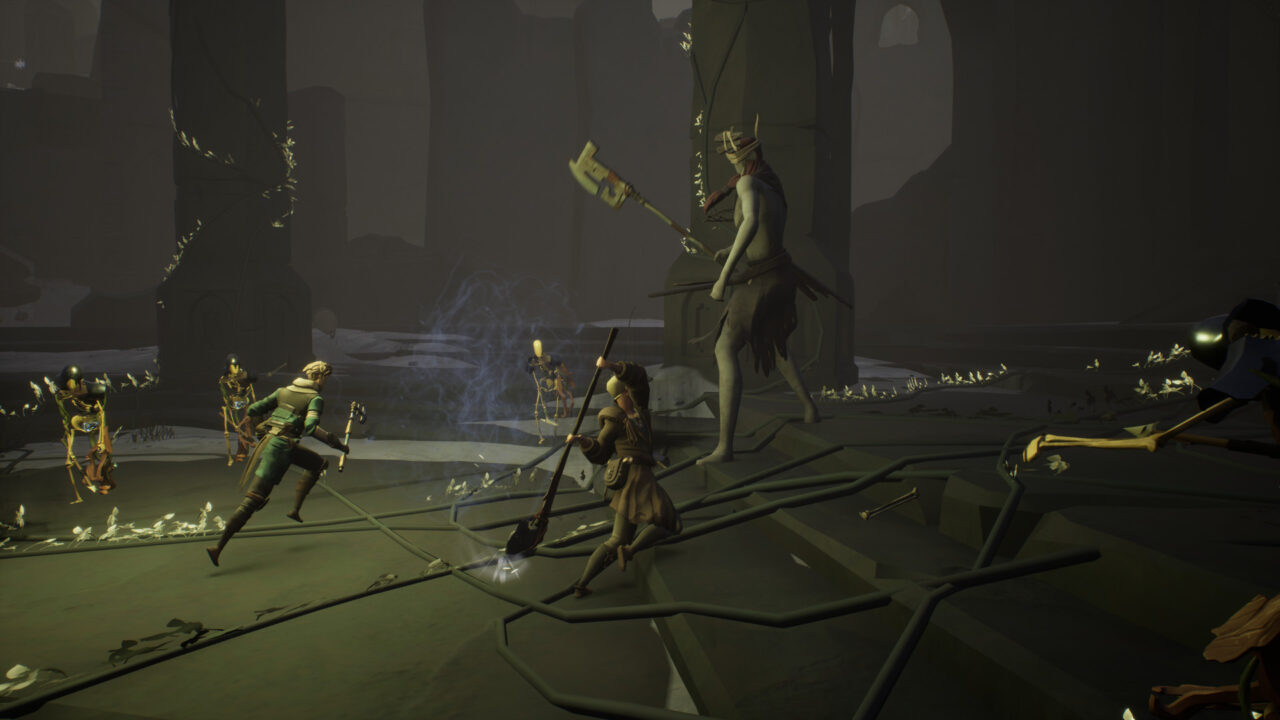
As I previously mentioned, in Ashen you get a companion with you on your travels. For the most part, it is the default friend you encounter at the hobo camp in the beginning. Occasionally, another friend will accompany you while you are working on their quest. This was a lot less of a nuisance than you might think. Rather than Ashen being a huge escort quest for a dumb dumb NPC, a lot of the time I was the dumb dumb who needed an escort. I’m told you can play online, a la Journey, where you cannot communicate with each other besides jumping in place or gyrating. But I was not online, and never had this experience.
The gameplay is similar to a souls game too. You travel around various environments, from save point to save point, killing enemies and searching for items. Frequently you will encounter a large dungeon that test your skills and anger management. You do simple quests for basically no other purpose than to get you to explore. It’s a simple formula and it works. Ashen gives you an intricate world filled with secrets to find and enemies that are fun to fight. What else do you need?
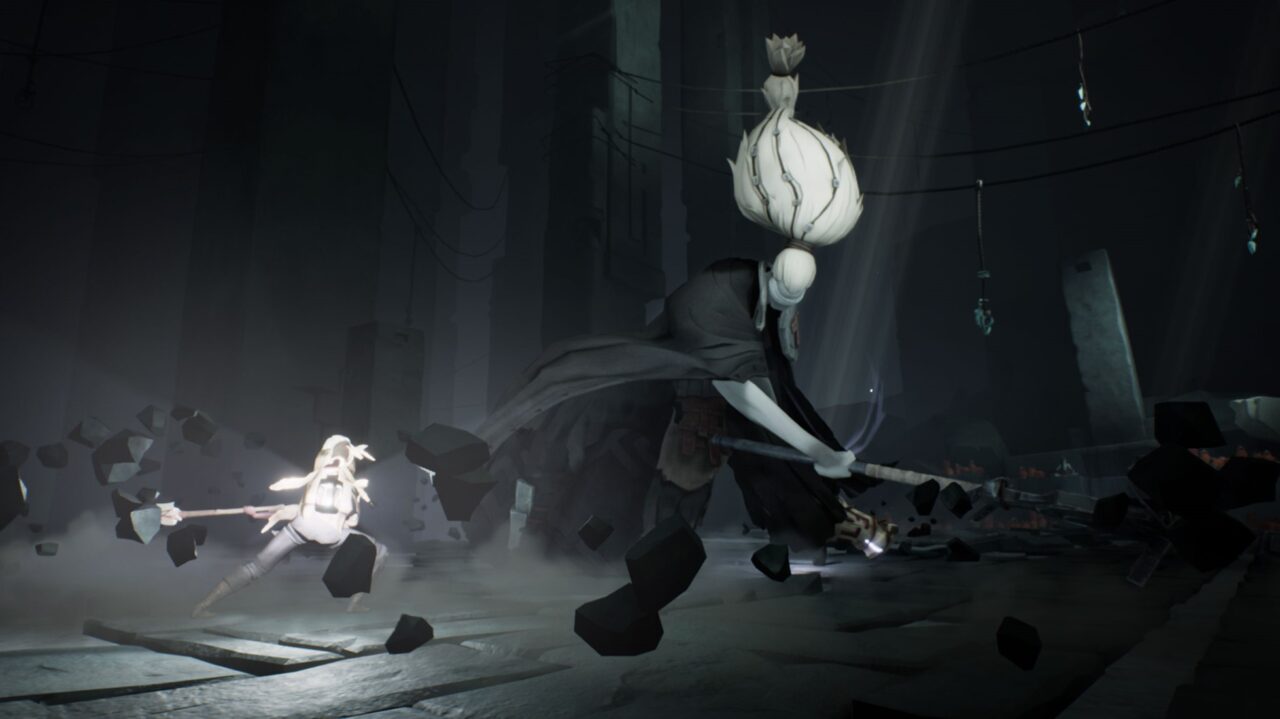
Well, a few things actually. As much as I love that tantalizing promise of a big serotonin jolt to my brain when I pick up an item, Ashen was a letdown. At some point, I realized that well over 90% of the items I was picking up were materials for items I rarely used. I was getting these materials way faster than I was consuming them. By the end of the game I had massive piles of refuse and other bits of garbage that were filling up my stash, because I have some mental disease that prevents me from throwing away virtual items that I will never touch. And as I inched closer to the game, my continual disappointment of finding nothing interesting but some useless materials and gear I would not use just kept increasing (I already had a max level shovel, the strongest weapon maybe to ever exist). By the last fifth of the game I was no longer any bit interested in picking up items, instead focusing on the fights and the scenery. Perhaps there’s a lesson there about the emptiness of consumerism, and how by searching for the next item I was missing the beauty of the world and its experiences. But perhaps not.
Ashen is a simple game, and the downside of simple games is that any flaw sticks out that much more. Ashen certainly isn’t perfect. But it knows what it’s trying to be and that counts for a lot. All too often game developers are trying to be on the cutting edge of graphics, and believe that their audience agrees with them that spending five million dollars to see realistic nose hair physics on Nathan Drake are more important than creating an enjoyable experience. Less is more, and the simplicity and efficiency of Ashen makes it a great game.
-
Game
Summary
In contrast to most Souls-like games, Ashen trades graphics for style, and grimdark apocalyptic fantasy for a simple world being reborn. It has its flaws, but it works.
Categorized:Horror Gaming Reviews

